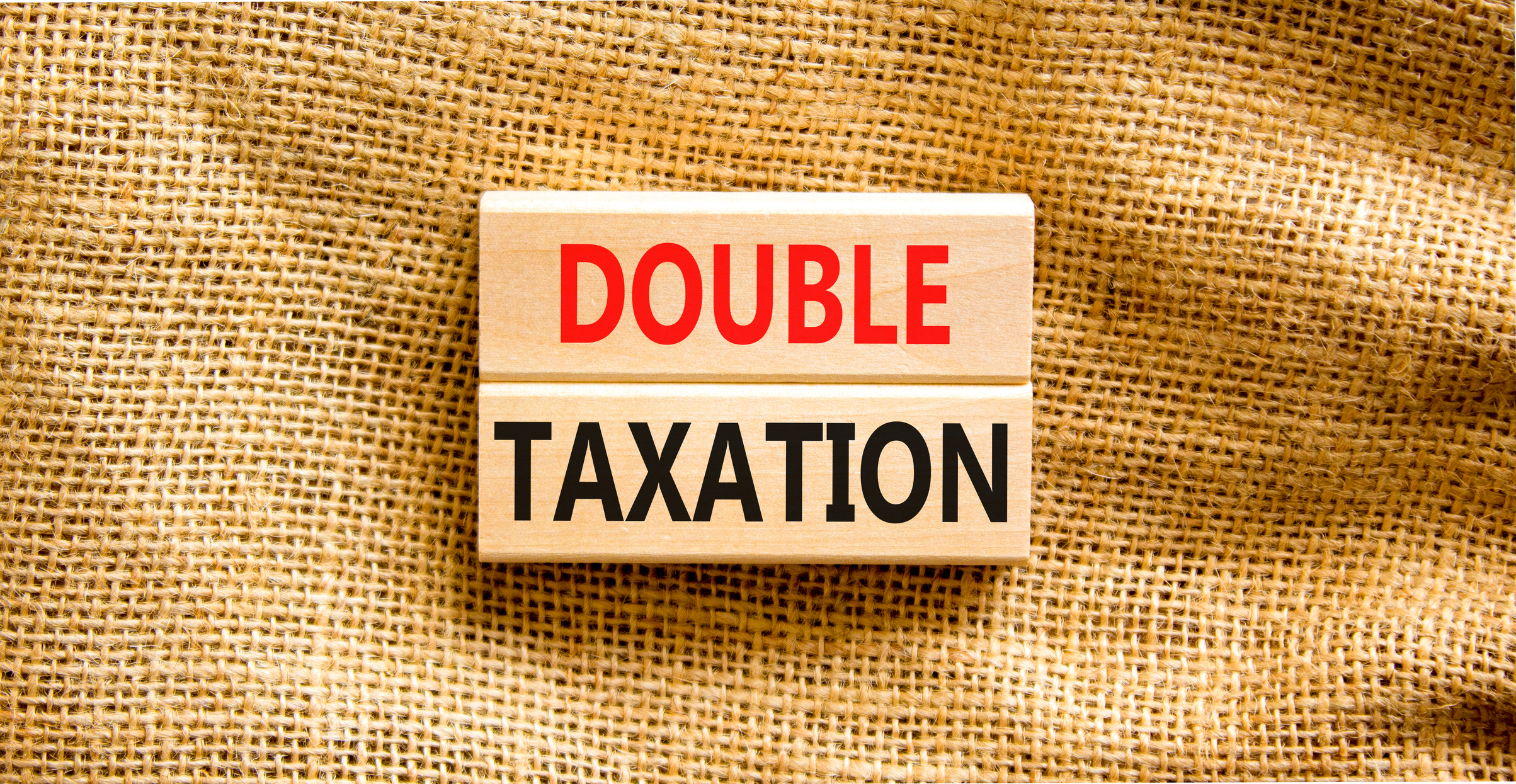New York Tax Guide
Explore New York's state tax rates for income, sales, property, retirement, and more. Learn how New York compares nationwide.


Profit and prosper with the best of Kiplinger's advice on investing, taxes, retirement, personal finance and much more. Delivered daily. Enter your email in the box and click Sign Me Up.
You are now subscribed
Your newsletter sign-up was successful
Want to add more newsletters?

Delivered daily
Kiplinger Today
Profit and prosper with the best of Kiplinger's advice on investing, taxes, retirement, personal finance and much more delivered daily. Smart money moves start here.

Sent five days a week
Kiplinger A Step Ahead
Get practical help to make better financial decisions in your everyday life, from spending to savings on top deals.

Delivered daily
Kiplinger Closing Bell
Get today's biggest financial and investing headlines delivered to your inbox every day the U.S. stock market is open.

Sent twice a week
Kiplinger Adviser Intel
Financial pros across the country share best practices and fresh tactics to preserve and grow your wealth.

Delivered weekly
Kiplinger Tax Tips
Trim your federal and state tax bills with practical tax-planning and tax-cutting strategies.

Sent twice a week
Kiplinger Retirement Tips
Your twice-a-week guide to planning and enjoying a financially secure and richly rewarding retirement

Sent bimonthly.
Kiplinger Adviser Angle
Insights for advisers, wealth managers and other financial professionals.

Sent twice a week
Kiplinger Investing Weekly
Your twice-a-week roundup of promising stocks, funds, companies and industries you should consider, ones you should avoid, and why.

Sent weekly for six weeks
Kiplinger Invest for Retirement
Your step-by-step six-part series on how to invest for retirement, from devising a successful strategy to exactly which investments to choose.
Navigating the complexities of state taxes can be daunting, but understanding New York's tax landscape is essential for residents and newcomers alike.
In this guide, we'll explore key components of The Empire State's tax system, from income and sales taxes to property taxes and retirement benefits.
New York state taxes: Overview
If you live in New York or are considering a move, it is worth taking a close look at how state taxes could impact your budget. The Empire State is already known for its high cost of living, and taxes are a big part of that picture.
From just $107.88 $24.99 for Kiplinger Personal Finance
Become a smarter, better informed investor. Subscribe from just $107.88 $24.99, plus get up to 4 Special Issues

Sign up for Kiplinger’s Free Newsletters
Profit and prosper with the best of expert advice on investing, taxes, retirement, personal finance and more - straight to your e-mail.
Profit and prosper with the best of expert advice - straight to your e-mail.
With income taxes, property taxes, and sales taxes all on the higher side, New York ranks among the most heavily taxed states in the United States. Still, it is not without its advantages, and some tax perks can help offset the costs.
In the News: There's another payout for some New Yorkers in 2025: the New York inflation refund check. This one-time payment is going out to over 8 million NY taxpayers, and, according to Gov. Kathy Hochul's office, eligible residents can expect to receive hundreds of dollars.
To learn more, see Kiplinger's report New York Inflation Refund Checks Are Coming: What to Know.
[Data for this state tax guide was gathered from several sources including the Census Bureau, the state’s government website, the Sales Tax Handbook, and the Tax Foundation. Property taxes are cited as a rate percentage rather than the assessed value.]
New York income tax

New York has a graduated state individual income tax rate ranging from 4% to 10.9%.
New York retirement taxes
New York tax on retirement benefits: New York does not tax Social Security benefits.
Additionally, retirement income from the federal government, New York state and local government, and military retirement plans is tax exempt.
Railroad retirement benefits are also tax-exempt.
Note: Taxpayers age 59 1/2 and older can exclude up to $20,000 of federally-taxed income from private retirement plans or government plans from another state.
- Tax on Taxable Income: Low of 4% (on up to $8,500 for single filers and $17,150 for joint filers) and a high of 10.9% (on more than $25,000,000 for all filers)
- Social Security: Not taxable
- Pensions: Taxable (Does not apply to federal, NYS, local, and military retirement income )
- 401(k) and IRA Distributions: Taxable
New York sales tax

The state sales tax rate is 4%, but New Yorkers pay a higher rate since localities can add as much as 4.53%.
In the New York City metro area, there is an additional 0.375% sales tax to support transit.
- Groceries: Exempt
- Clothing: Taxable
- Prescription drugs: Exempt
How much are property taxes in New York?

In New York, the median property tax rate is 1.26%, and the average property tax bill is $3,343, making it one of the most expensive in the U.S.
Thankfully for adults over age 65, property taxes could cost less.
New York Property Tax Breaks for Retirees
Property tax exemption for adults over age 65: New York law gives local governments and public school districts the option of granting a reduction on the amount of property taxes paid by qualifying adults over age 65 by reducing the assessed value of residential property by 50%. Older adults (aka seniors) over age 65 must meet certain criteria to qualify.
- Must be 65 or older
- Have a maximum income between $3,000 and $50,000 (varies by county, city, town, and school district)
- If income is over $50,000, some property owners may qualify for a partial exemption of between 5% and 20%.
Enhanced STAR program for adults over age 65: The Enhanced STAR program exempts part of a home's value from school property taxes. Adults over age 65 must meet the criteria to qualify for the tax break, and the property must be their primary residence.
- Adults must be 65 or older (or turn 65 in the calendar year they apply).
- Cannot have an income above $93,200 (includes income of resident spouses and domestic partners)
New York gas tax

Gasoline | $0.08 per gallon |
Diesel | $0.08 per gallon |
Source: Sales Tax Handbook
New York alcohol and tobacco taxes
Product | Tax Amount |
|---|---|
Cigarettes | $4.35 per pack |
Other Tobacco Products | 75% of wholesale price |
Medical Marijuana | 7% |
Recreational Marijuana | 13% |
Source: Sales Tax Handbook
Product | Tax Amount |
|---|---|
Wine | $0.30 per gallon |
Beer | $0.14 per gallon |
Liquor | $6.44 per gallon |
Source: Sales Tax Handbook
New York estate and inheritance taxes
There is no inheritance tax in New York, but there is an estate tax. For 2025, estates exceeding $7.16 million are subject to New York's estate tax.
Taxable gifts made by the decedent as a New York resident within three years before death are included as part of the estate. Tax rates range from 3.06% to 16%.
The New York estate tax is a "tax cliff." That means if the value of the estate is more than 105% of the current exemption, the exemption won't be available, and the entire estate will be subject to state estate tax.
Related Content
Profit and prosper with the best of Kiplinger's advice on investing, taxes, retirement, personal finance and much more. Delivered daily. Enter your email in the box and click Sign Me Up.

Katelyn has more than 6 years of experience working in tax and finance. While she specialized in tax content while working at Kiplinger from 2023 to 2024, Katelyn has also written for digital publications on topics including insurance, retirement, and financial planning and had financial advice commissioned by national print publications. She believes knowledge is the key to success and enjoys providing content that educates and informs.
-
 Quiz: Do You Know How to Avoid the "Medigap Trap?"
Quiz: Do You Know How to Avoid the "Medigap Trap?"Quiz Test your basic knowledge of the "Medigap Trap" in our quick quiz.
-
 5 Top Tax-Efficient Mutual Funds for Smarter Investing
5 Top Tax-Efficient Mutual Funds for Smarter InvestingMutual funds are many things, but "tax-friendly" usually isn't one of them. These are the exceptions.
-
 AI Sparks Existential Crisis for Software Stocks
AI Sparks Existential Crisis for Software StocksThe Kiplinger Letter Fears that SaaS subscription software could be rendered obsolete by artificial intelligence make investors jittery.
-
 How to Open Your Kid's $1,000 Trump Account
How to Open Your Kid's $1,000 Trump AccountTax Breaks Filing income taxes in 2026? You won't want to miss Form 4547 to claim a $1,000 Trump Account for your child.
-
 In Arkansas and Illinois, Groceries Just Got Cheaper, But Not By Much
In Arkansas and Illinois, Groceries Just Got Cheaper, But Not By MuchFood Prices Arkansas and Illinois are the most recent states to repeal sales tax on groceries. Will it really help shoppers with their food bills?
-
 7 Bad Tax Habits to Kick Right Now
7 Bad Tax Habits to Kick Right NowTax Tips Ditch these seven common habits to sidestep IRS red flags for a smoother, faster 2026 income tax filing.
-
 New Plan Could End Surprise Taxes on Social Security 'Back Pay'
New Plan Could End Surprise Taxes on Social Security 'Back Pay'Social Security Taxes on Social Security benefits are stirring debate again, as recent changes could affect how some retirees file their returns this tax season.
-
 Living in One State, Working in Another: How to Avoid a Tax Season Headache
Living in One State, Working in Another: How to Avoid a Tax Season HeadacheState Tax Living and working in two states can take a heavy toll on your paycheck and give you a headache come tax time. Here's what to know.
-
 10 Cheapest Places to Live in Colorado
10 Cheapest Places to Live in ColoradoProperty Tax Looking for a cozy cabin near the slopes? These Colorado counties combine reasonable house prices with the state's lowest property tax bills.
-
 New Gambling Tax Rule Impacts Super Bowl 2026 Bets
New Gambling Tax Rule Impacts Super Bowl 2026 BetsTaxable Income When Super Bowl LX hype fades, some fans may be surprised to learn that sports betting tax rules have shifted.
-
 Should You Do Your Own Taxes This Year or Hire a Pro?
Should You Do Your Own Taxes This Year or Hire a Pro?Taxes Doing your own taxes isn’t easy, and hiring a tax pro isn’t cheap. Here’s a guide to help you figure out whether to tackle the job on your own or hire a professional.